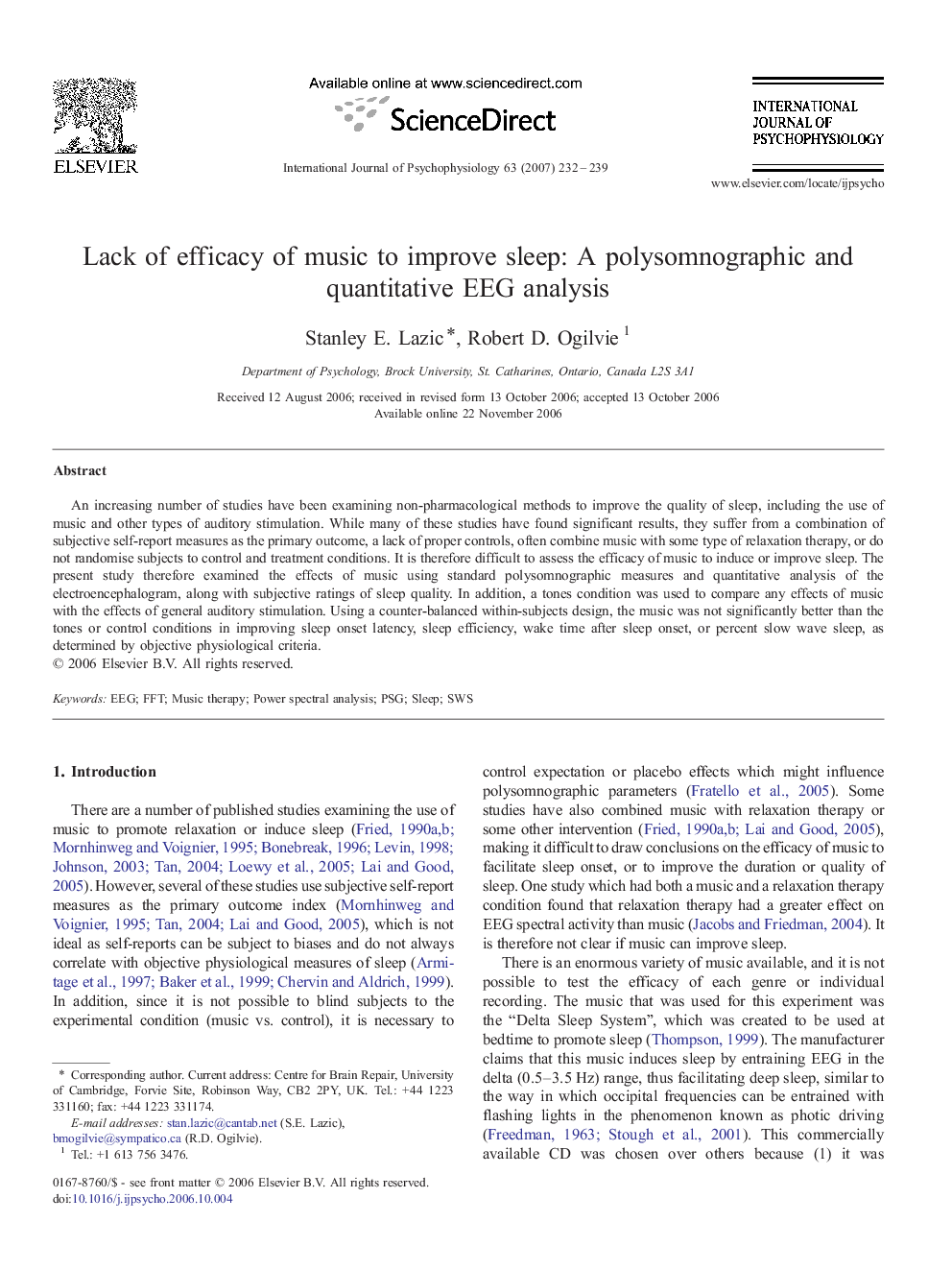| Article ID | Journal | Published Year | Pages | File Type |
|---|---|---|---|---|
| 931295 | International Journal of Psychophysiology | 2007 | 8 Pages |
An increasing number of studies have been examining non-pharmacological methods to improve the quality of sleep, including the use of music and other types of auditory stimulation. While many of these studies have found significant results, they suffer from a combination of subjective self-report measures as the primary outcome, a lack of proper controls, often combine music with some type of relaxation therapy, or do not randomise subjects to control and treatment conditions. It is therefore difficult to assess the efficacy of music to induce or improve sleep. The present study therefore examined the effects of music using standard polysomnographic measures and quantitative analysis of the electroencephalogram, along with subjective ratings of sleep quality. In addition, a tones condition was used to compare any effects of music with the effects of general auditory stimulation. Using a counter-balanced within-subjects design, the music was not significantly better than the tones or control conditions in improving sleep onset latency, sleep efficiency, wake time after sleep onset, or percent slow wave sleep, as determined by objective physiological criteria.
